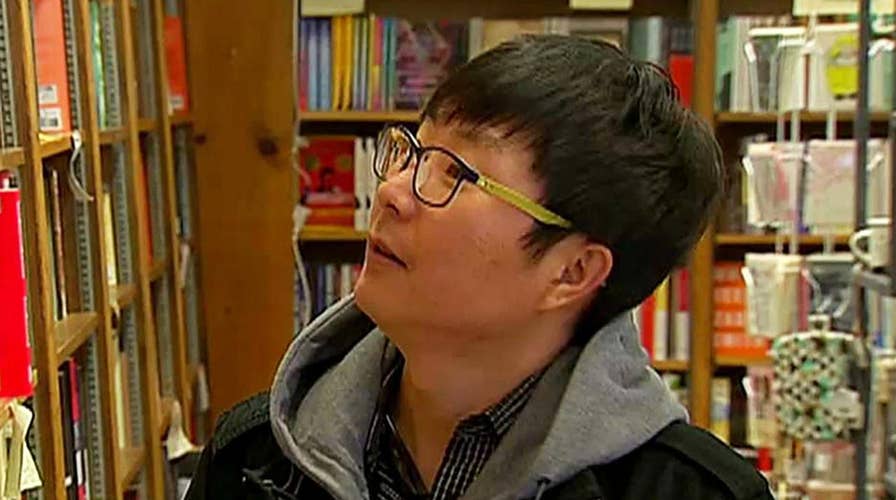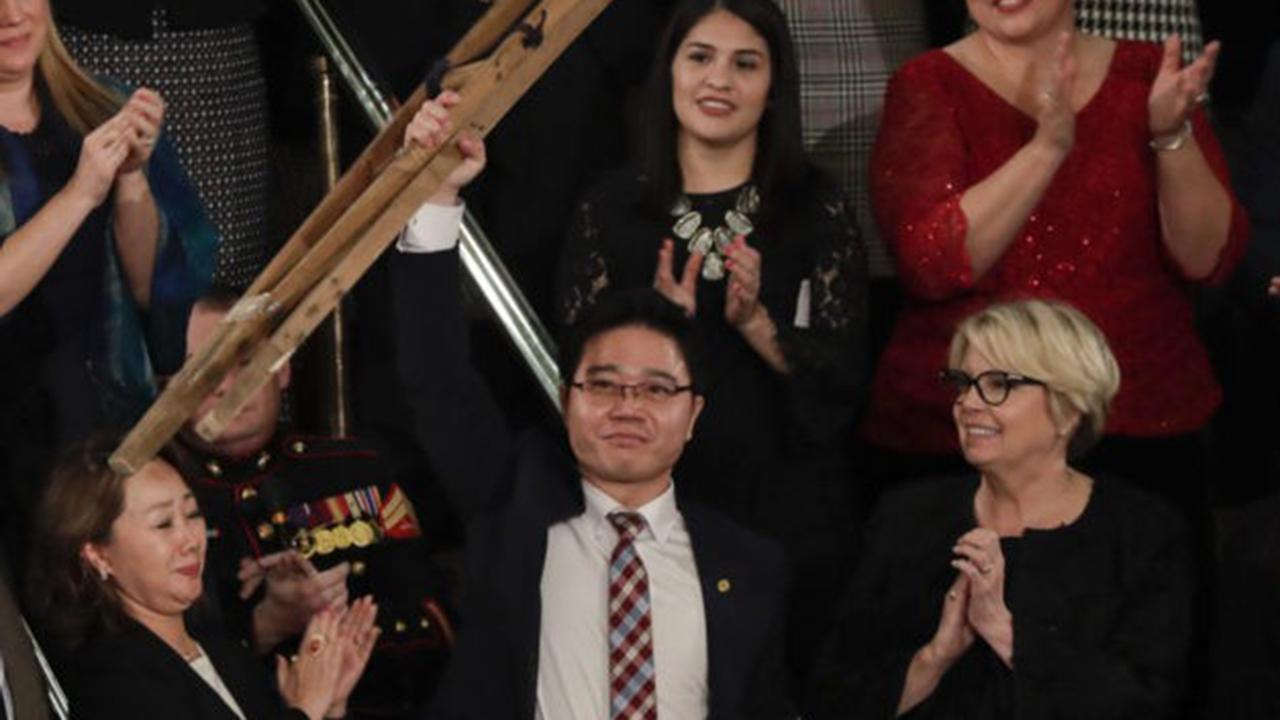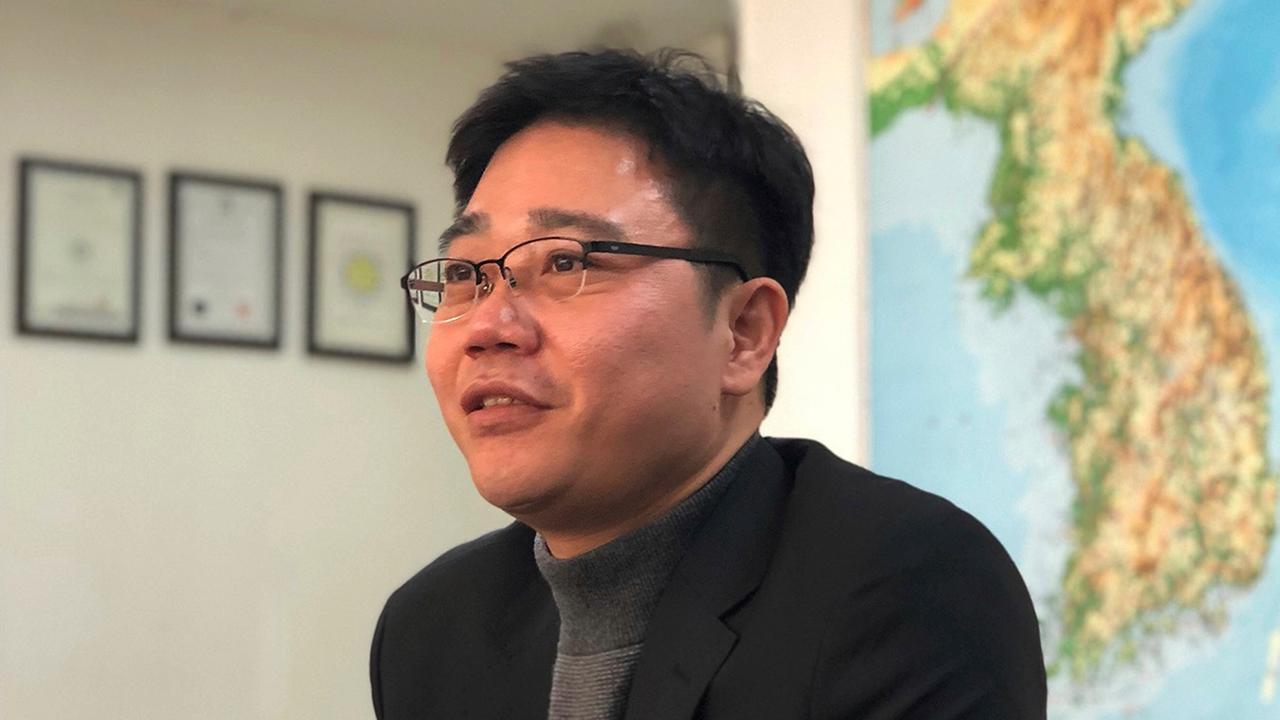Eric Shawn reports: We are called 'American bastards'
North Korean escapee on what he was taught about the U.S.
The North Koreans have a term that the regime tells them how to characterize Americans.
It is: "American bastards."
"When we are describing American people, they never spoken the word, 'American people.' It's ‘American bastards,’" said Seongmin Lee, a 31-year-old North Korean escapee who has found a new home in the United States.
"We understood it as one word," he says. "It is very, very negative and because you grow up hearing that kind of word throughout your lifetime, it becomes very familiar, it is not strange at all."
Today, when Seongmin walks along the Ivy League walkways of Columbia University in New York City, he looks like any American college student. But he savors the new-found freedoms of our nation, perhaps more than any of his other classmates. As a political science major in the School of General Studies, he has a new life and fresh perspective on our nation.
While the possibility of talks between the Trump administration and the regime of Kim Jong Un has sparked optimism, he fears the long history of anti-U.S. propaganda that has indoctrinated generations of North Koreans and could prove to be an obstacle.
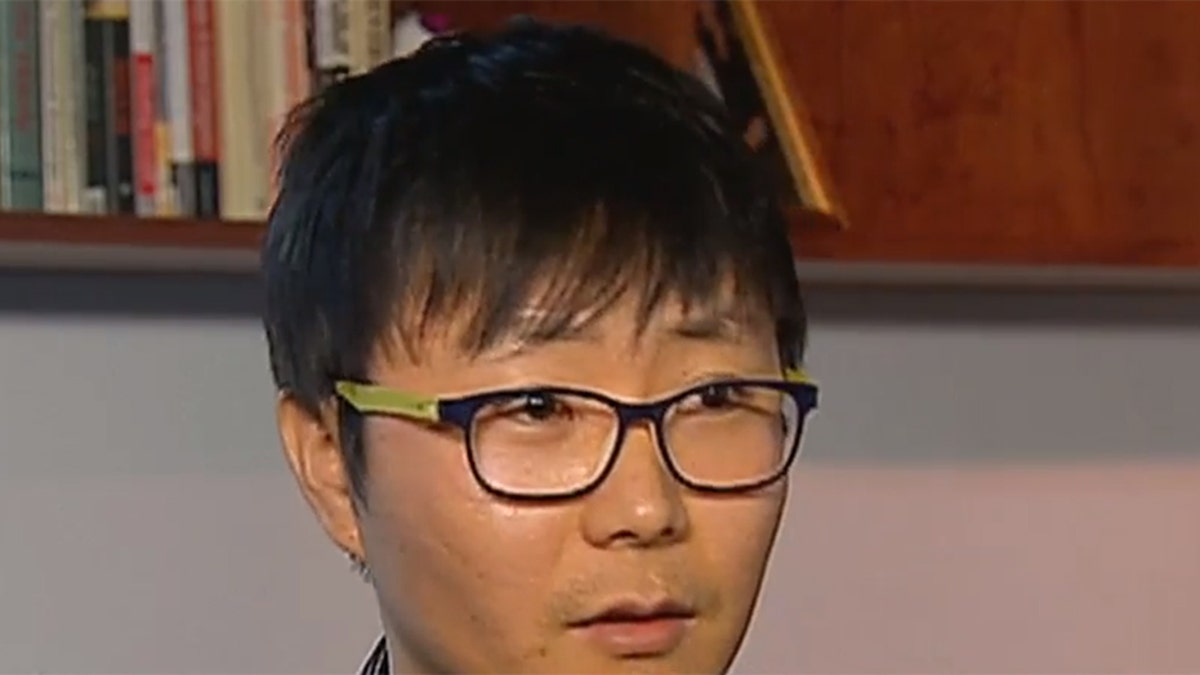
When North Koreans describe those in the U.S. they say "American bastards," said Seongmin Lee, a 31-year-old North Korean escapee who has found a new home in the United States.
"When I was 5 or 6 years old, I went to kindergarten," Seongmin remembers. "One of the significant activities was to have hatred towards America, but we didn't know necessarily what it was.”
For example, he said, when playing games instructors would give the kids a wooden stick, and there was a mannequin of an American soldier.
“Our game was to hit that mannequin of the American soldier and then hand over the stick to another kid,” he said. “That kind of thing is a pretty normal activity as a kid in North Korea."
He told Fox News that while growing up, North Korean students are also taught that the U.S. planned to invade his country, but that North Korea would always win.
"America is waiting for the chance to enslave or invade our country, so as a kid what you are hearing is, that you have to be ready to be the next generation to protect our country and basically be ready to fight hostile forces," he recalled. "The brainwashing and indoctrination is kind of a scary thing."
Seongmin was able to escape to South Korea in 2010, and he made his way to our shores as a student in 2016. He learned that everything he was taught about the U.S. all of this life, was actually disinformation and not true. Living here may have shattered his misconceptions, but the process of changing his view about America took some time.
"I had been taught to believe really bad, for my entire lifetime there and it was hard to change my mindset quickly," he explained. "But that type of perception started changing when I had a chance to interact with American students."
He said that he is astounded at the simple freedoms that American routinely enjoy, and take for granted.
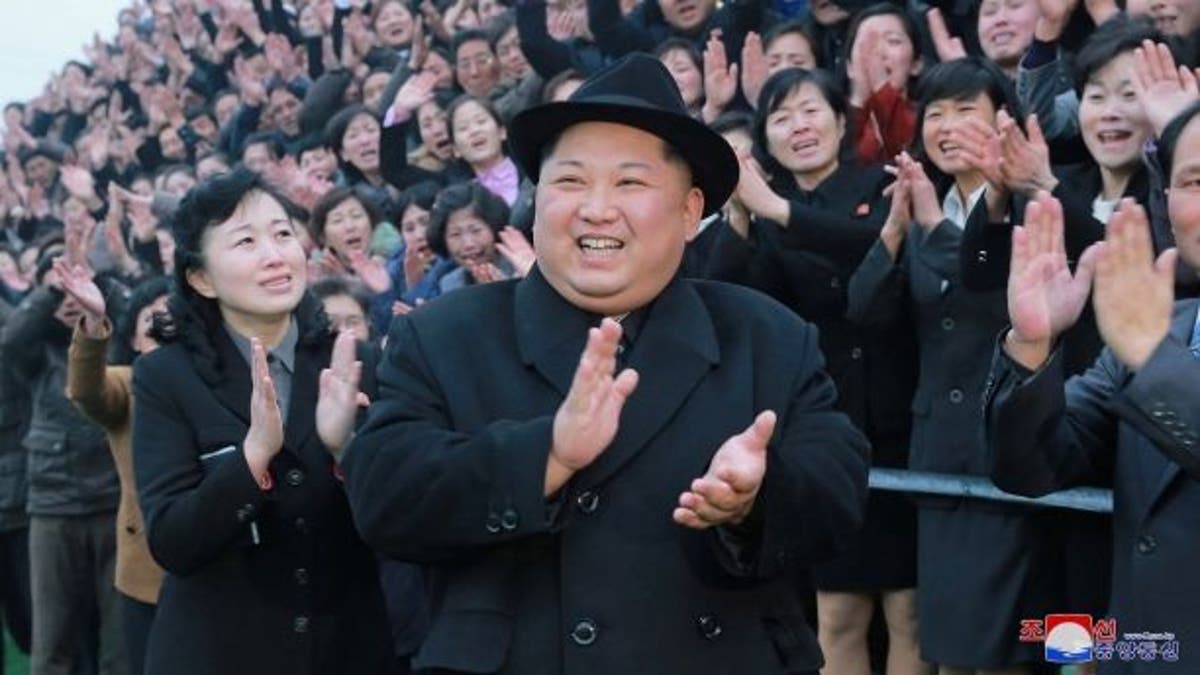
While the possibility of talks between the Trump administration and the regime of Kim Jong Un (above) has sparked optimism, Seongmin Lee, a defector, fears the long history of anti-U.S. propaganda that has indoctrinated generations of North Koreans and could prove to be an obstacle.
"It is a great country," he says "I am very thankful to be allowed to study at such a great university and sometimes I cannot even imagine when I am taking classes with students who are born and grew up here, that they have discussions about political issues and I cannot simply imagine. I am really grateful. This country allows me to see what I learned in North Korea and I see it with a different perspective and wider scope. Why did they teach me like that?
He said the most surprising part of American life is the country's diversity, and our freedom to criticize our elected leaders.
In North Korea, "there is no debate, or criticism of any government policy. That type of thing is unfathomable. But here you are taught critical thinking, which is amazing!"
He was stunned at the country’s free flow of ideas and our ability to disagree with each other, which we take for granted.
"Here in America, you see a lot of demonstrations, criticisms, seminars and activists going against certain government policies. That kind of thing was hard to understand for the first time, but now I am learning in school that that is the dynamic aspect of a democracy. I'm still learning."
Despite President Trump's demands of denuclearization of the Korean Peninsula, Seongmin does not believe that Kim Jong Un will ever surrendered his nuclear weapons program. He says the regime sees its nuclear force as the key to its survival, but he does believe that the U.S. and North Korea need to meet to try to resolve the nuclear issue.
"You have to talk, you have to sit down to talk to another side, what you really need, why do you really need and are obsessed with these nuclear weapons? There must be some compromise from both sides.”
As a person who grew up in North Korea, he believes in dialogue and diplomatic engagement.
“If you think about me as an individual, in a span of a few years I was an official DPRK citizen, but now I am talking here with you, sitting with the American media, being able to communicate with each other, being able to understand each other,” he said, “this probably would not have happened if we hadn't had this type of opportunity to sit down together. So if you just block and don't see each other, you remain the main enemy forever."
Seongmin says the most powerful weapon in the U.S. arsenal to confront the regime, is simply deploying American ideals, such as distributing Hollywood films. He said the Trump administration should embark on an information campaign, sending DVD's and USB sticks of American movies into the country, so that North Koreans can learn about the world beyond their borders.
"North Korean people, 25 million citizens, have been truly isolated from the international community. They have been segregated. They don't have the internet. They are not allowed to make any international phone calls,” he said. “But they are just taught America is bad, North Korea is the best, that type of propaganda is still working because they are so isolated."
"My belief is you have to target the North Korean people. I truly believe that eventually, the key is in the hands of the North Korean people," and they way to reach them he says, is to "send information in the form of USB sticks and DVD's. I endorse it."
He said American movies, which are illegally smuggled in, are popular.
"Some people are watching movies like ‘Titanic,’ it's very popular. Some of my friends watched it in North Korea. It's really fascinating," he said. "It’s unthinkable."
"If you watch a North Korean movie, or if you hear a North Korean song it mostly, 70 to 90 percent, is designed to praise the leader...or the system," he explained. "There is no movie to describe the true aspects of human life, for instance dating, all kind of family aspects, they are still connecting it to the propaganda message."
Seongmin's dream is for North Koreans to one day live freely, and enjoy the same liberties that he does now. He hopes that he will be able to return to a liberated homeland one day.
"The country should be open. The regime should allow its people to live freely," he said. "I truly believe it is virtually a prison."
He said the dictatorship rules with such an unforgiving iron hand, because the regime actually fears its own citizens.
"They are scared. They are scared of people knowing the reality. That is why they block their eyes, that is why they block their ears, and even if they think what they are doing is the right thing, the righteous thing for your people, why are they so scared?
"There is no reason to execute people for duplicating or selling foreign DVD's," he says of the regime. "There is nothing to be scared of, but you are scared because what you are doing is not right."
Even though Seongmin is now living here, he says he still has nightmares that North Korean border guards are chasing him. But when he wakes up and opens his eyes, he is so thankful to be in America.
Marta Dhanis contributed to this report.







































